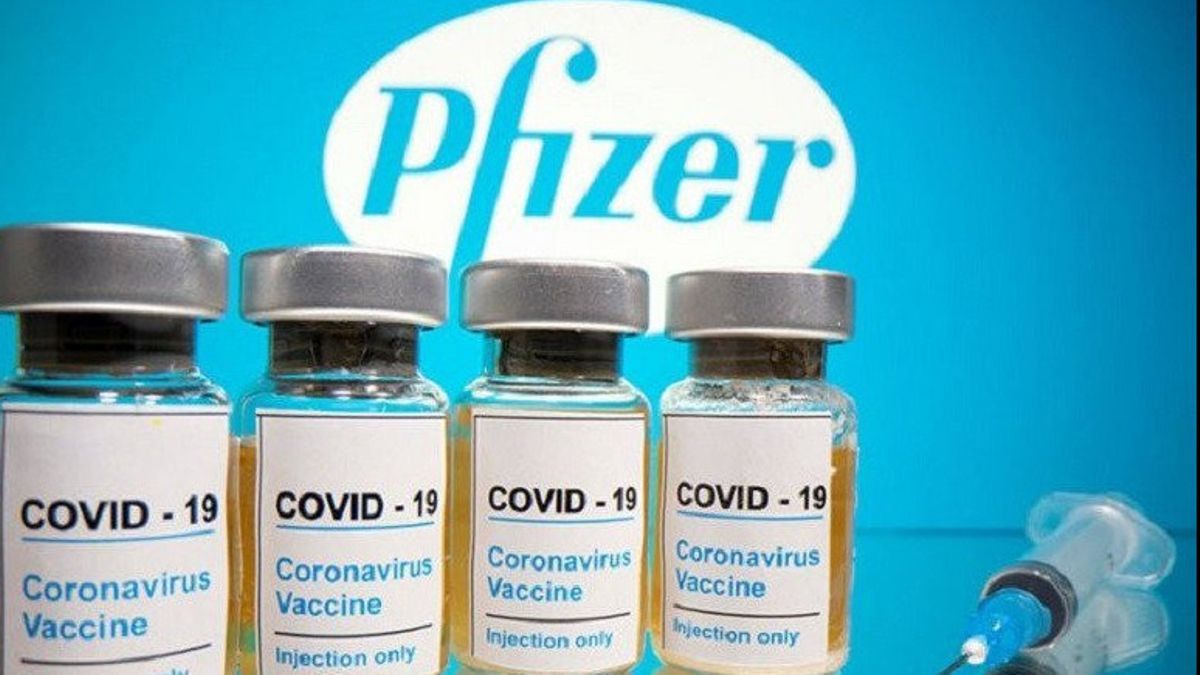JAKARTA - People with a 'history of significant allergic reactions' should not be given the Pfizer COVID-19 vaccine. This warning was conveyed by British health authorities, Wednesday, December 9 after two health workers experienced symptoms after receiving the injection the day before.
Quoting CNN, Thursday, December 10, cautionary advice was given when the two people got negative results after receiving their first vaccine injection during a mass vaccination in the UK. Both people reported a history of allergic reactions.
Allergy is the development of symptoms of anaphylactoid reaction. Thousands of people in total were vaccinated in Britain as of Tuesday, December 8, NHS UK said.
"As is common with new vaccines, the MHRA (Regulatory Agency for Health Products and Medicines) has suggested as a precaution that people with a history of significant allergic reactions did not receive this vaccination after two people with a history of allergic reactions responded negatively yesterday," said Stephen. Powis, National Medical Director for NHS England, in a statement. "Both are recovering well."
The MHRA is issuing new advice to health care professionals stating that anyone with a significant allergic reaction to vaccines, drugs or food should not receive the Pfizer / BioNtech vaccine. The advice also states that vaccines should only be administered in facilities where resuscitation measures are available.
"We are fully investigating the two reports that have been reported to us as priority issues ... After all the information has been reviewed, we will present the latest advice," said an MHRA spokesman.
They advise anyone with a history of a significant allergic reaction receiving the Pfizer / BioNTech vaccine to talk to a health care professional who is administering the vaccine. Pfizer said in a statement that it had been advised by UK regulators on "two possible yellow card reports of allergic reactions" to the administration of the vaccine.
"As a precautionary measure, the MHRA has issued interim guidelines to the NHS when conducting investigations to understand each case and its causes. Pfizer and BioNTech support the MHRA in the investigation," the statement said.
"In an important phase 3 clinical trial, this vaccine was generally well tolerated without the serious safety concerns reported by the independent Data Monitoring Committee. The trial has enrolled more than 44,000 participants to date, more than 42,000 of whom have received. second vaccination. "
A document released by the US Food and Drug Administration (FDA) says Pfizer's experimental data suggests the possibility of a slightly adverse response, which is considered an allergic reaction. This occurred between the vaccine group compared to the placebo group, at 0.63 percent compared with the vaccine group 0.51 percent.
The Pfizer trial protocol indicated that people with a history of severe allergic reactions 'to any component of the study intervention' were not eligible. Vaccine expert Dr. Paul Offit says that allergic reactions to vaccines are not uncommon: Of course, vaccines can cause severe allergic reactions. In the US, approximately one in every 1.4 million doses of vaccine is complicated by a severe allergic reaction.
He said that rather than a "overarching recommendation" for people with allergies, the smarter thing to do would be to study these two patients and see what specific components of the vaccine they are allergic to.
Offit said people should be aware that there is immediate treatment for allergic reactions. "That's why you have to be in the doctor's office," he said, before warning that reports of an allergic reaction were another way to scare people.
The English, Chinese, Japanese, Arabic, and French versions are automatically generated by the AI. So there may still be inaccuracies in translating, please always see Indonesian as our main language. (system supported by DigitalSiber.id)








